9 of Japan’s Most Unforgettable Shrines and Temples
Buddhist temples and Shinto shrines are everywhere in Japan. Selena Hoy reveals her pick of 9 deservedly famous holy structures you have to see for yourself.
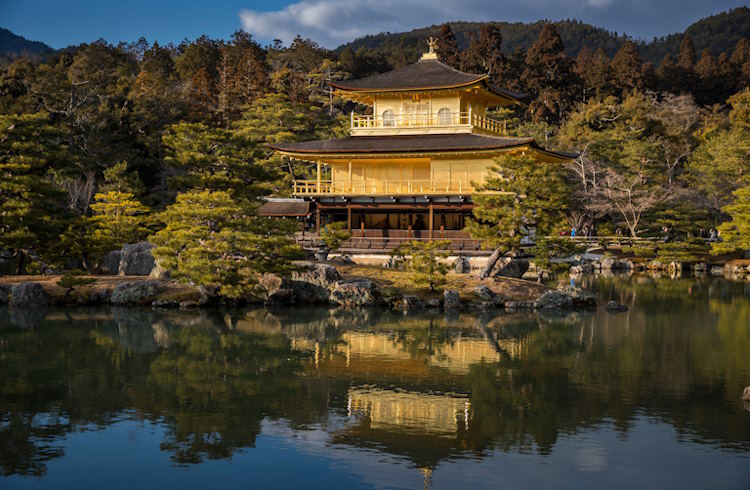 Photo © Richard I'Anson
Photo © Richard I'Anson
Shrines and temples are an integral part of Japan’s history and culture and visiting them is a wonderful way to understand important aspects of Japan. Even for Japanese people who aren’t overtly religious, Shinto and Buddhism are woven into everyday life, and influence aesthetics, diet, holidays, rituals, and celebrations. For me, stepping onto the grounds of a shrine or temple is a chance to commune with nature and my ancestors, and to take the time to make connections that get lost in the everyday hubbub.
- Kinkakuji
- Kiyomizudera
- Ginkakuji
- Ryoanji
- Meiji Shrine
- Sensoji
- Itsukushima Shrine
- Shitennoji
- Kushida Shrine
Kinkakuji
The vista of the Golden Pavilion, as Kinkakuji is also known, is arresting – sitting on a slight hill and mirrored, gleaming, in the pond below. I last visited the famous Kyoto Zen temple while the country was still closed to overseas visitors during the pandemic, and the quiet splendor of that morning is not one I’ll soon forget.
The temple is officially known as Rokuonji, and its storied past includes dramatic incidents of fire, disease, and suicide. The temple and its history were the inspiration for Yukio Mishima’s novel The Temple of the Golden Pavilion.
The brilliant appearance is thanks to genuine gold leaf, which is hammered into whisper-thin sheets by gold leaf artisans in Kanazawa, and the temple is set in a classical Japanese garden meant to be an earthly representation of Pure Land Paradise.
Kiyomizudera
Climbing the narrow, atmospheric streets of Sannenzaka in Kyoto’s Higashimaya District, the sight of Kiyomizudera’s vermillion pagoda imprinted itself on my mind. The UNESCO World Heritage Buddhist temple began life in 778 but has been through fire and rebuilt ten times.
The temple, with its expansive grounds and lush foliage, pays tribute to Kannon, the Goddess of Mercy. Her 42 arms and 11 expressions represent her great compassion, as she works to relieve humans from their earthly burdens.
The grounds of Kiyomizudera, which means “pure water temple”, have 1,500 cherry trees and 1,000 trees displaying colorful autumn foliage, making the temple a popular spot in the spring and fall.
Kyoto is always busy with tourists, but I find major sights such as this to be slightly less crowded on weekday mornings. Otherwise, I take the mindset to embrace the bustle of the site as part of the experience.
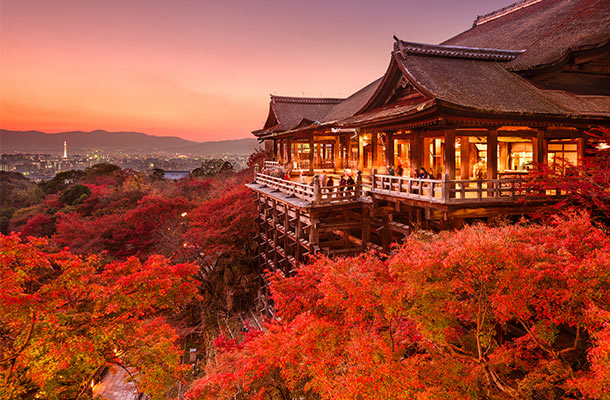
Ginkakuji
Also in Kyoto, Kinkakuji’s more sedate cousin is Ginkakuji, meaning silver pavilion. Despite its nickname (its official name is Jishoji), this temple is not covered in silver, but it is modeled on its famous predecessor. Though it’s not nearly as flashy, I love visiting this temple as part of the Philosopher’s Path walk, as its quiet beauty and traditional Japanese garden are the perfect setting for a meditative stroll.
Built in 1482 by the shogun Ashikaga Yoshimasa, Ginkakuji was a major cultural center of the Higashiyama District, with great influence on tea ceremony, Noh theater, poetry, garden design, and more. Today, the Zen temple with a moss garden and a meticulously raked dry sand garden, along with a pond and small waterfalls along the winding paths, is a good place to reflect on Kyoto’s massive contribution to Japanese traditional culture.
Ryoanji
If the karesansui, a Japanese dry garden, interests you, head to the Zen temple of Ryoanji, which was originally an aristocrat’s villa before being converted to a temple in 1450. The UNESCO World Heritage site is most famous for its rock garden, which combines 15 large stones and white sand spread out over 248 meters (2,670 sq. ft.).
The walking trails and Kyoyochi Pond add to the allure and make for a lovely walk, but my favorite part of Ryoanji is Saigenin, the shojin ryori (Buddhist vegetarian cuisine) restaurant featuring nanakusa yudofu, seven-herb tofu stew, served in a beautiful, ascetic space overlooking the garden. It’s a quintessential Kyoto experience.
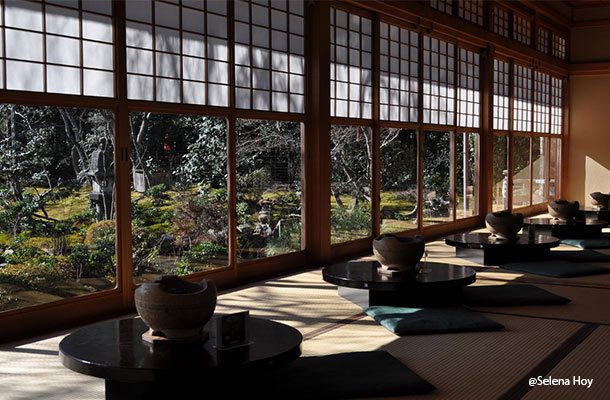
Meiji Shrine
Moving from Japan’s historical capital to its modern one, Meiji Shrine holds pride of place as one of the country’s most important shrines. It’s dedicated to the Meiji Emperor and Empress Shoken, who ruled during the Meiji Restoration, when the feudal era came to an end the imperial power was restored. It was at this time that the capital was changed from Kyoto to Tokyo, in 1868, and the Meiji Emperor is considered the first emperor of the modern era.
Meiji Shrine is a Shinto shrine, Japan’s homegrown animistic religion. The shrine grounds, completed in 1920 after the Emperor’s death, consist of a large forested area adjacent to Yoyogi Park and Harajuku Station. The shrine is flanked by huge cypress torii, or gates, demarcating the sacred inner grounds.
Despite being adjacent to one of the buzziest parts of Tokyo, I love how peaceful it is here. Even when the site is thronging with crowds (it sees 3 million visitors during the new year holiday), there are pockets of quiet to be found in between the trees and shrine buildings. It’s an oasis in the city, one that’s aligned with nature; one interesting aspect is that the shrine is open from sunrise to sunset, and so the exact times – by the clock– vary from month to month.
Sensoji
Where Meiji Shrine is sedate and nature-focused, Sensoji is colorful and raucous. Perhaps Tokyo’s most famous Buddhist temple, and its oldest, it was built in 645 after two fishermen found a statue of the Goddess of Mercy, Kannon, in the Sumida River.
The imposing Kaminarimon, or Thunder Gate, marks the entrance to the temple, and the street leading up to the temple grounds, called Nakamise, thrums with vendors selling trinkets, religious paraphernalia, and treats like freshly grilled rice crackers, along with the visitors shopping, snacking, and preparing to pay their respects.
At the temple itself, devotees pray and bask in the sacred smoke of incense they hope might cure their ailments; I like to buy amulets for good health here to pass out to friends and family. In May, the streets are filled with revelers celebrating the Sanja Matsuri, a lively festival filled with half-naked (and sometimes heavily tattooed) participants hoisting portable shrines through the crowds.
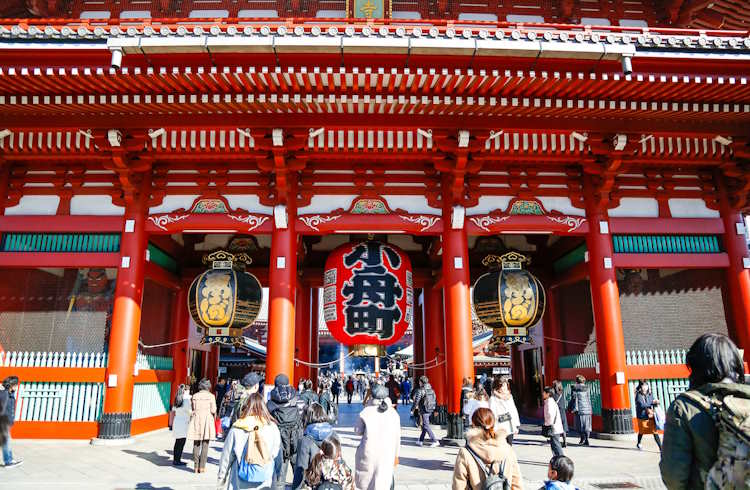
Itsukushima Shrine
If Itsukushima Shrine, on the island of Miyajima in Hiroshima, seems otherworldly, well, maybe it is. Legend has it that goddesses chose this location for the site of the shrine because of the protected bay within the Seto Inland Sea.
The shrine’s “floating” torii is set in the water off the shore; it’s a sacred gate, meant for deities. Parts of the shrine, too, are built on platforms over the water, and its graceful lines and brilliant vermillion paint make for an impressive sight, whether viewed up close, from the sea or lit up at night.
Venturing further into the island’s interior adds to its mystique, in my opinion. Although there are plenty of touristy spots, with inns and souvenir shops catering to the many visitors, a climb up the holy Mount Misen also reveals that the island is home to plenty of wild critters, such as native deer, tanuki, and wild monkeys (who are all too happy to steal your lunch, so beware!).
Shitennoji
In Osaka, the first Japanese Buddhist temple was founded by Prince Shotoku in 593. Prince Shotoku was one of the major supporters of the introduction of Buddhism in Japan, and Shitennoji was the first Buddhist temple built by the state, giving Buddhism the status of an official religion.
The temple is best known for its pagoda, which is open to the public and can be climbed, level by level, via stairs, giving a fascinating glimpse at the interior architecture of such a structure. The gardens, too, are notably based on the Western Paradise of the Amida Buddha, and feature cherry blossoms, a lotus pond (complete with lots of charming turtles), and brilliant maples in the fall.
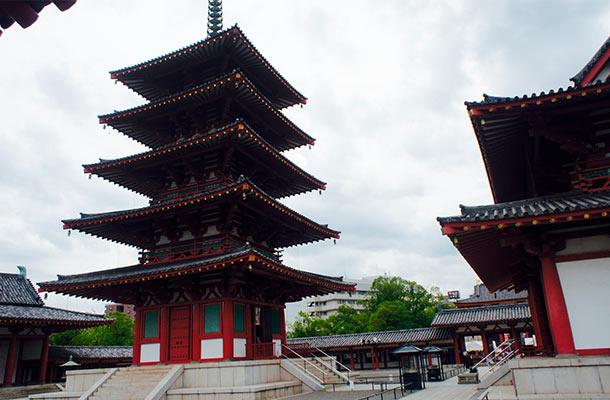
Kushida Shrine
Kushida Shrine may just be the heart of Fukuoka. Dedicated to three of Japan and Shinto’s foundational deities, Amaterasu-omikami, Susanowo-no-mikoto, and Ohatanushi-no-mikoto, the shrine is the guardian of Hakata, one half of modern Fukuoka.
Founded in 757, Kushida Shrine is the home of the Hakata Gion Yamakasa Festival, Fukuoka’s most popular and lively summer festival lasting two weeks in July, characterized by huge portable shrines, floats, and spirited dancers in loincloths and cotton robes.
On a recent visit, I could see the shrine visitors stopping by on their lunch break or home from work to pause under the 1,000-year-old ginkgo tree, or to spare a wish at the graceful sculpture of three cranes gathered around a well, said to be a fountain of youth.
Related articles
Simple and flexible travel insurance
You can buy at home or while traveling, and claim online from anywhere in the world. With 150+ adventure activities covered and 24/7 emergency assistance.
Get a quote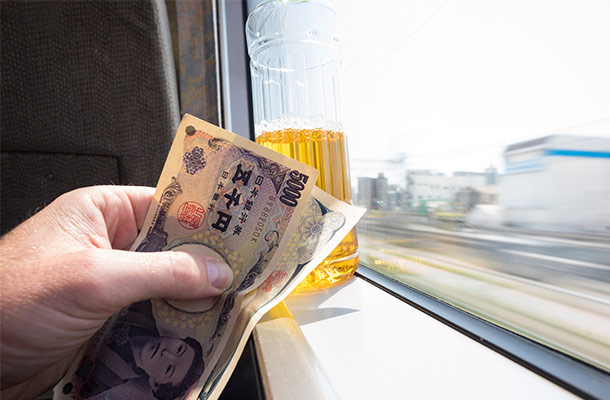
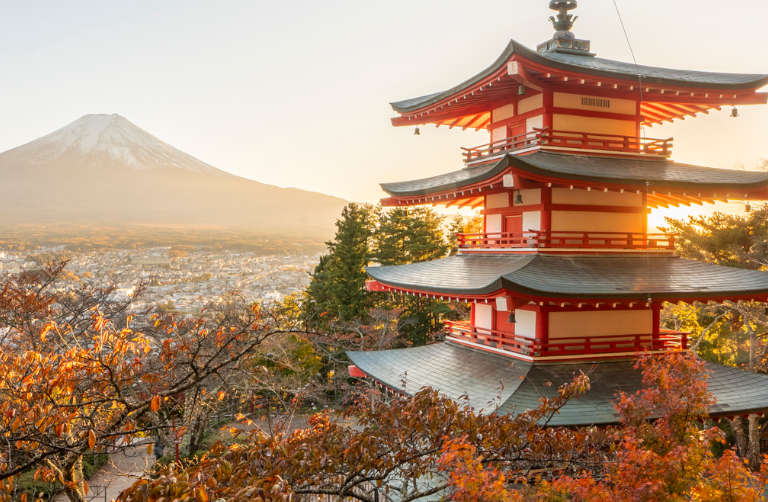
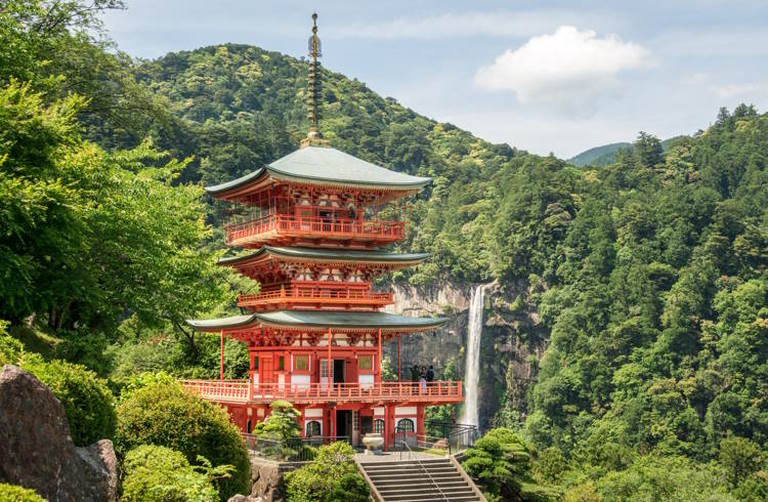
1 Comment
I want to work with your Photographer, Is there a chance?
I hope this and have the good fortune.